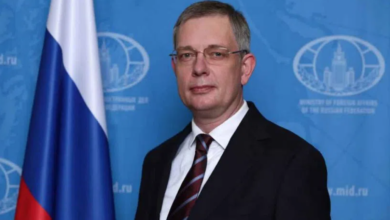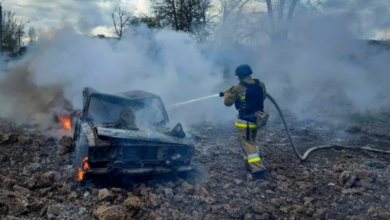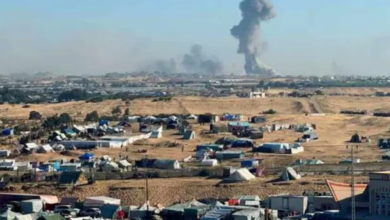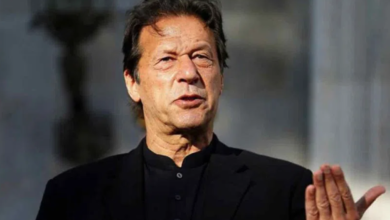British-Iranian man executed by Tehran ‘was MI6 spy’
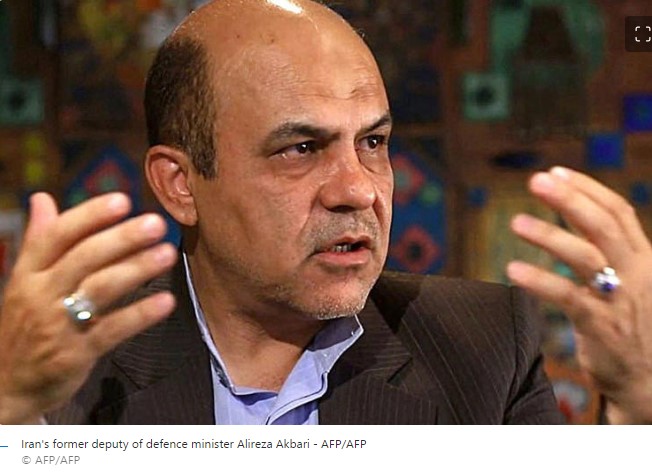
A British-Iranian citizen hanged in Tehran in January was a spy, intelligence officials have said.
Alireza Akbari, 62, Iran’s former deputy defence minister, began giving information, including nuclear secrets, to Britain in 2004 and continued doing so for 15 years, sources told the New York Times.
Iran charged Mr Akbari with being a MI6 agent but the British government has never acknowledged he was a spy.
According to the New York Times, a senior British intelligence official went to Tel Aviv in 2008 and told Israeli officials they had a mole with access to Iran’s nuclear secrets.
The British official provided information, from Mr Akbari, that suggested Iran was clandestinely pursuing nuclear weapons.
It included the disclosure that Iran had been busily enriching uranium at a secret underground site at Fordow, 20 miles northeast of Qom.
The following year, at the G20 summit in Pittsburgh, Barack Obama, standing alongside Gordon Brown and Nicolas Sarkozy, made that bombshell public.
Mr Obama told the world that Tehran was operating a “covert uranium enrichment facility,” and was “endangering the global nonproliferation regime.”
Mr Brown added that Iran’s clandestine nuclear base should “shock and anger” the international community, which had “no choice today but to draw a line in the sand.”
The role of Mr Akbari, at that time, remained unknown to the public, and to the Iranian regime.
Other Western intelligence agencies knew only that Britain had something they did not. London was gleaning information of extraordinary value from a deeply embedded human source on the ground.
An Israeli official at the time said they were “shocked” by the British discovery of the Fordow site.
Over the years Mr Akbari also reportedly disclosed the identity and activities of more than 100 Iranian officials.
They included Mohsen Fakhrizadeh, the chief nuclear scientist known as the “father of the Iranian bomb”, who would later be assassinated by Israel in 2020.
The New York Times report was based on interviews with current and former intelligence officials from the US, UK, Israel, Germany and Iran.
Mr Akbari’s family has previously dismissed the idea that he was a spy.
They said he was involved in the regime at the “highest levels” and was the victim of a “political game” in Tehran.
A relative told the Telegraph around the time of his execution: “He was a good man who was devoted to his family. Brutal regimes do this to good people and unfortunately this was one of those cases.
“I have fond memories of him visiting us pretty much every Iranian new year regardless of his work schedule. He was kind to me when I was growing up. I remember his smiles.
“As I got older he could see that I was not a supporter of the regime but, regardless of that, because we were family members, he was always kind to me.”
MI6 ‘paid spy £2 million’
Mr Akbari was a soldier before joining the government and rising to become deputy defence minister.
One of the reasons he appeared to evade authorities in Tehran for so long was that he was deeply religious.
He was reportedly devoted to his Shia faith, expressed hardline political views and was regarded by colleagues as ambitious.
Within the Iranian regime he was a strong voice arguing in favour of developing nuclear weapons, the New York Times reported.
As international concern grew about Iranian nuclear ambitions around 2004, it was Mr Akbari who was trusted enough to meet with ambassadors from the five members of the UN Security Council to tell them their fears were unfounded.
Tehran would later claim that he was recruited at that time during a function at the British Embassy, and was offered visas for his family.
It claimed MI6 paid him a total of £2 million and that he set up companies in the UK, Austria and Spain as a cover to meet handlers.
In 2008, the same year Western intelligence agencies learned about the Fordow site, Mr Akbari retired, although he remained an adviser to the head of the Supreme National Security Council, according to the New York Times.
The newspaper reported that he was then arrested and detained for months, suspected of being a British spy, before being released.
Soon after that, he moved to London with his family – a wife and two daughters – and then became a British citizen.
He was still in contact with Iranian officials and made at least three trips back to Tehran, the New York Times reported.
The last of those was in 2019 when the head of the Supreme National Security Council asked him to return.
He was then interrogated and arrested on suspicion of espionage.
Iranian sources with connections to the Revolutionary Guards told the New York Times that a link between Mr Akbari and the Fordow revelation had by then been discovered.
That link was reportedly supported by Russian intelligence, but the nature of Moscow’s information was not known.

